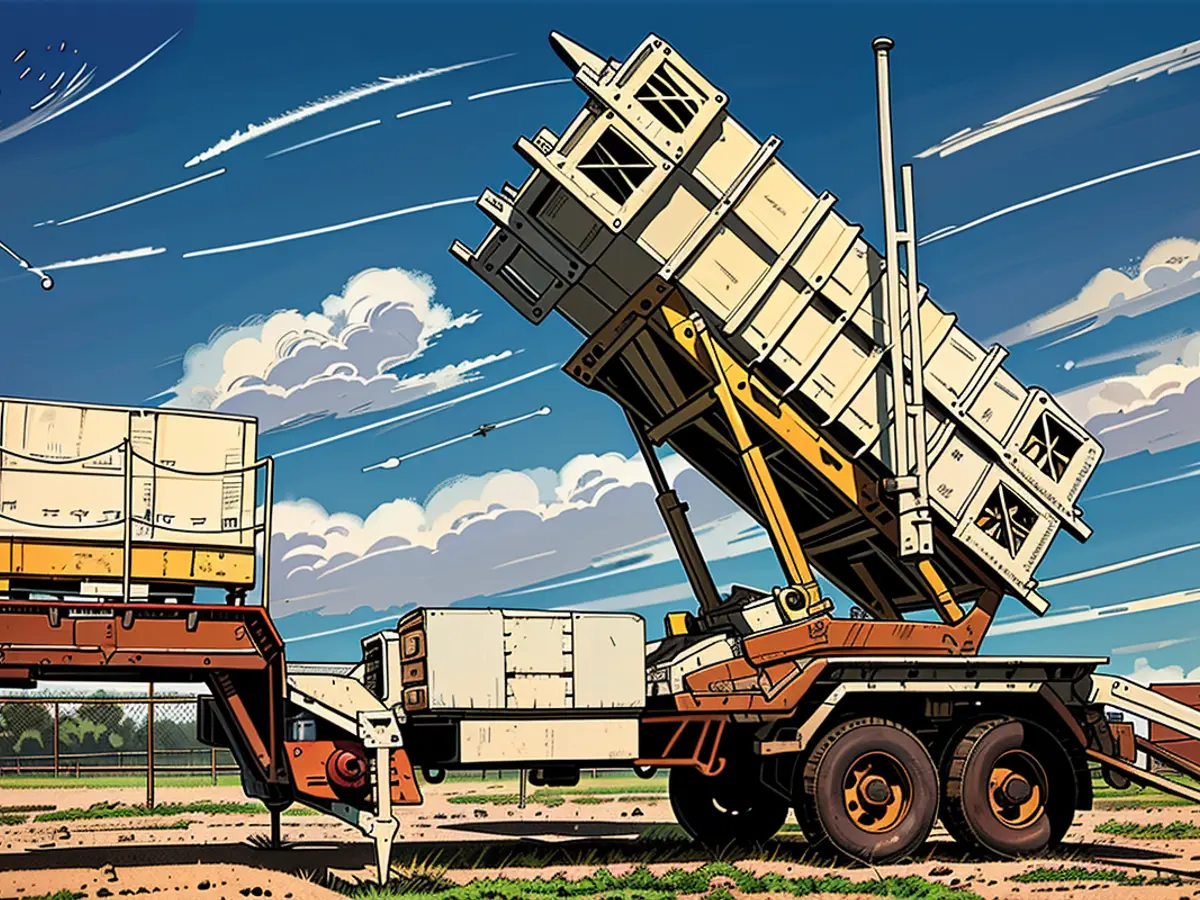United States prioritizes Ukraine for the provision of air defense systems
A high-ranking White House figure characterized the shift in policy as a "pretty unprecedented" adjustment, crucial for Ukraine at a pivotal moment. Commencing this summer, shipments to Ukraine are on the agenda, and it's unclear at this point the number of countries affected.
Before the decision, Ukrainian authorities emphasized to the Biden administration the urgent need for additional air defenses as Russia persisted with its aerial bombardment of cities and civilian facilities.
"Without our action, Ukraine wouldn't have been able to maintain their essential air defense reserve through the winter, full stop," the official stated. "This move is about enabling them to shield themselves against the relentless Russian missile and drone attacks."
Priority is given to Ukraine to receive "adequate quantities" of vital air defense systems, namely the Patriot and NASAM interceptors. This action means that other nations already in line for the weapons will have to wait, according to sources.
State Department and Defense Department officials are engaged in intensive diplomatic efforts to inform the impacted countries that they will receive the interceptors at delayed schedules, as per the White House official.
Ukraine stands to be the first recipient of the air defense capabilities this summer, and the policy will remain effective for 16 months. The other countries will then receive the interceptors they requested.
Recent updates on the policy change were shared with congressional leadership last week, but details about the affected countries were withheld, sparking frustration, sources said. This information has yet to be disclosed to Congress.
The White House official declined to disclose the list of affected countries, only confirming that air defense exports to Taiwan wouldn't be impacted.
"So far, at least in the private discussions, most of those countries have grasped the importance of this decision," the official added, "If any of our partners were in an existential crisis like the one Ukraine is currently in, we'd go to great lengths to assist them, and it just so happens that the nation currently facing that predicament is Ukraine."
The change is the latest strategic move from the Biden administration to help Ukraine fend off Russian aggression. Last month, Biden granted Ukraine permission to employ American munitions within Russian territory, veering from traditional US policy, albeit imposing restrictions.
This move parallel's the Biden administration's efforts to bolster Ukraine's air defense systems as well, according to a second White House official. The decision comes as the Biden administration adapts its stance on the conflict to address shifting battlefield needs, and as NATO and the G7 reinforce their aid to Ukraine amid uncertainty over the November US presidential election.
Former President Donald Trump, the presumptive Republican nominee, has threatened to curtail US support for Ukraine, and the country's war effort suffered greatly when Republicans in Congress delayed a significant military aid package for several months until its eventual approval in April.
Months-long planning process
The concept of modifying the global order was initially proposed internally by national security adviser Jake Sullivan around mid-April when Russia was escalating its air attacks against Ukraine and Congress had yet to authorize a supplemental defense package for the country.
At approximately the same time, a shortage of air defenses left Ukraine vulnerable to a Russian air raid that obliterated the region's largest power plant, President Volodymyr Zelensky stated.
Following months of internal assessment, the Pentagon tabled various options for the transformation. The plan to prioritize Ukraine was finalized in late May.
"Our message to Russia is that if they think they can outlast Ukraine in this conflict, they're wrong," the official remarked, adding, "we are now mobilizing our defense industrial capacity to produce air defense interceptors that will be rapidly shipped to Ukraine, ensuring they have sufficient quantities to resist Russian air missile strikes for the foreseeable future."
Biden announced the news to Zelensky last week during their meeting on the sidelines of the G7 in Italy, the official said.
Additionally, the pair announced the signing of a bilateral security treaty that pledges the US for ten years to continued military training of Ukraine's armed forces, augmented weapon and equipment production cooperation, ongoing military aid provision, and increased intelligence exchange.






